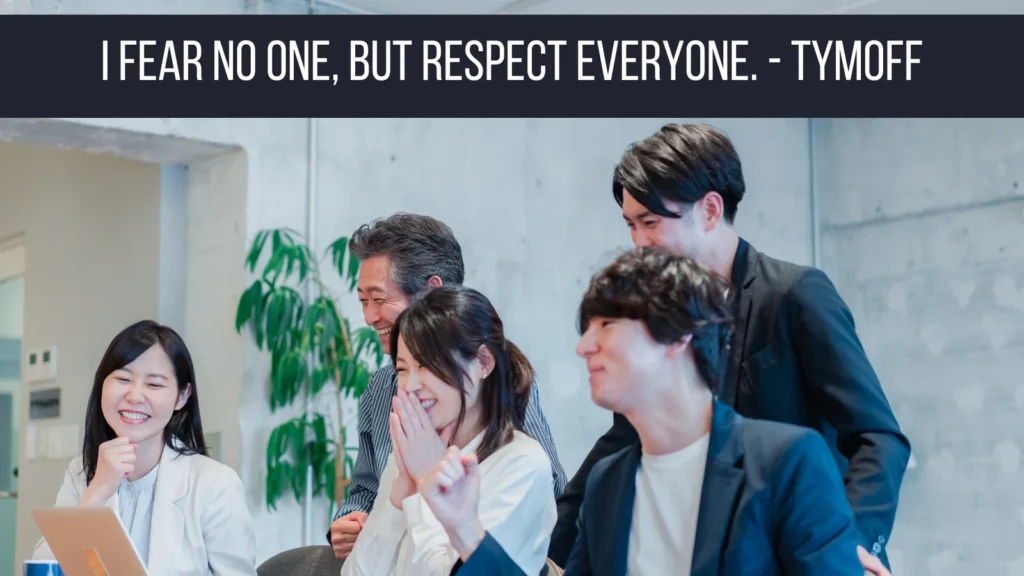The phrase I Fear No One, But Respect Everyone – Tymoff encapsulates a profound approach to life and interpersonal relationships. It signifies a balanced mindset that embraces courage while honoring the dignity of others. This article delves into the essence of this philosophy, its relevance, and how it can transform one’s perspective and interactions.
In an era where fear and disrespect often dominate societal and personal interactions, adopting a mindset that emphasizes fearlessness and respect can lead to more meaningful and harmonious relationships. Understanding this philosophy is crucial for personal growth, leadership, and fostering a respectful community.
Types and Categories:I Fear No One, But Respect Everyone – Tymoff
Psychological Aspects
- Fearlessness: The psychological state of being unafraid.
- Respect: Recognition of the inherent worth of others.
Behavioral Aspects
- Assertiveness: Acting confidently without aggression.
- Courtesy: Displaying polite behavior towards others.
Symptoms and Signs
Indicators of Fearlessness
- Confidence in Actions: Taking decisive steps without hesitation.
- Calm Under Pressure: Maintaining composure in stressful situations.
Indicators of Respect
- Active Listening: Paying full attention to others during conversations.
- Consideration: Taking others’ feelings and perspectives into account.
Causes and Risk Factors
Causes of Fear
- Past Experiences: Traumatic events that shape fear responses.
- Societal Norms: Cultural influences that perpetuate fear.
Causes of Disrespect
- Ignorance: Lack of awareness about others’ worth.
- Ego: Overestimating one’s importance over others.
Diagnosis and Tests
Assessing Fearlessness
- Self-Reflection: Evaluating one’s reactions to challenges.
- Behavioral Analysis: Observing actions in high-pressure situations.
Assessing Respectfulness
- Feedback from Others: Gathering insights from peers and colleagues.
- Self-Assessment Tools: Using questionnaires to gauge respect levels.
Treatment Options
Cultivating Fearlessness
- Exposure Therapy: Gradually facing fears to diminish their impact.
- Mindfulness Practices: Techniques such as meditation to enhance calmness.
Enhancing Respect
- Education: Learning about different cultures and perspectives.
- Empathy Training: Exercises to improve understanding and compassion.
Preventive Measures
Building Fearlessness
- Positive Affirmations: Repeating empowering statements.
- Skill Development: Gaining competence in various areas to boost confidence.
Promoting Respect
- Cultural Sensitivity Training: Programs to enhance awareness and appreciation of diversity.
- Modeling Behavior: Demonstrating respectful interactions.
Personal Stories or Case Studies
Real-Life Examples
- Leaders Who Exemplify Courage and Respect: Examining figures like Nelson Mandela.
- Everyday Heroes: Stories of individuals who embody these principles in daily life.
Expert Insights
Quotes and Advice
- Psychologists on Fearlessness: Insights into overcoming fear.
- Sociologists on Respect: The importance of respect in social cohesion.
Conclusion
Adopting the philosophy of fearing no one but respecting everyone can lead to personal empowerment and stronger, more respectful communities. This approach is vital for personal development and societal harmony.
Encourage readers to practice fearlessness and respect in their daily lives, fostering a more empathetic and courageous world.
Read More:ANDRE HAKKAK HOUSE







